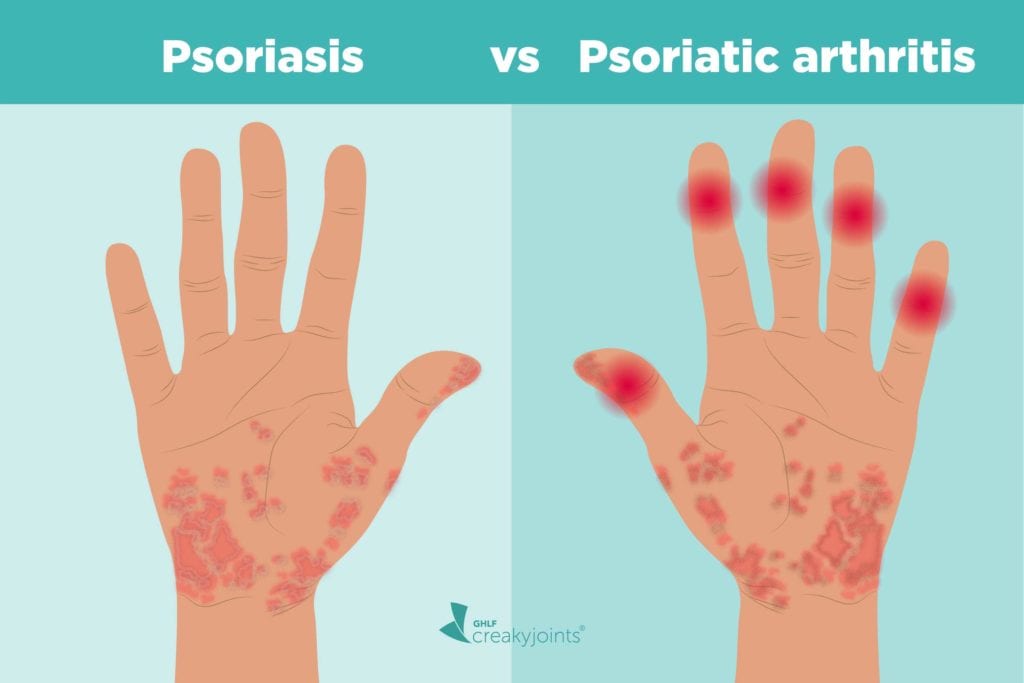Many people who have skin conditions that cause visible irritation in the form of red or dry skin can be self-conscious about their appearance. They search and search for ways to get rid of the annoying patches, or even sometimes take the aggressive approach and attempt to scratch it all away. But your skin is sensitive, so it’s important to take care of it. There are many ways to help manage and reduce the appearance of irritated skin that develops as a result of psoriasis without hurting your skin even more.
What is Psoriasis?
:max_bytes(150000):strip_icc():format(webp)/psoriasis-overview-1069493_v2-7ec3824b67f94a2c8331949a919b70c5.png)
Psoriasis is a condition that appears as patches of red, dry skin, typically covered with white or silvery scales, according to WebMD. Mona Gohara, a board-certified dermatologist, was quoted in an article for Well + Good and explained psoriasis as “the overgrowth of the top layer of skin cells in the epidermis, and is thought to be brought about by an immune reaction in the skin”.
Psoriasis Statistics
According to the National Psoriasis Foundation, psoriasis affects 125 million people worldwide, which equates to 2-3% of the world’s population. In just the United States alone, more than 8 million people have this skin condition.
In comparing the prevalence of psoriasis with different skin colors, it was found that 1.5% of African Americans have psoriasis compared to 3.6% of Caucasians. However, due to differences in clinical presentation, psoriasis is more likely to be underdiagnosed among people of color, so this number reflects only the ones actually diagnosed.

Photo credit: CreakyJoint
There isn’t a specific age range that psoriasis affects. However, it is more likely to appear at two peak age ranges: 20-30 years old and 50-60 years old. Psoriatic arthritis is an inflammatory disease where tendons and ligaments connect to bone. It can appear around ten years after the onset of psoriasis, but some people can get psoriatic arthritis first or without ever developing psoriasis. Psoriatic arthritis typically appears between the ages of 30 and 50 but, like psoriasis, can develop at any age.
How Do You Treat Psoriasis?
There is no cure for psoriasis, but there are many treatments that can help lessen your pain and irritation and also build your self-confidence. According to MD Jessica Kaffenberger, in an article she wrote for the Ohio State University Wexner Medical Center, she has a few recommendations to help soothe your skin.
One treatment for psoriasis is showering with warm water instead of hot water. The heat can cause inflammation that could, in turn, cause itching, which can actually make psoriasis worse. In an article for Everyday Health, Michele Bloomquist also suggests soaking in warm water for 15 minutes to loosen the scales. Bloomquist mentions that adding oatmeal, sea salt, and bath oil or gel that contains coal tar can help soothe the skin even more.
Getting some sun can help with psoriasis, according to Bloomquist’s article. The ultraviolet light can help patches diminish. However, sun exposure without any SPF applied to the affected area should be limited to 15 minutes to avoid any sunburns or more harm to your skin.
Moisturizing is also very important in helping soothe your psoriasis. Kaffenberger suggests using lotions without irritating fragrances and applying them right after the shower for the best results.
According to WebMD, finding products with exfoliating acids can help combat psoriasis. These acids can weaken bonds between skin cells and therefore soften and remove the scales. One example of an exfoliating acid that’s commonly used for psoriasis is salicylic acid, which helps those psoriasis scales come off faster. However, it’s important to not apply it to large areas of skin or to leave it on too long, as it could cause health problems if your body absorbs too much. That being said, it’s advised that children don’t use products containing salicylic acid at all.
Another type of exfoliating acid is alpha-hydroxy acids, including glycolic and lactic acids. These can also be gentler on your skin than salicylic acids. Urea is another type of exfoliating acid that can be used because it thins and moisturizes your skin. There are many over-the-counter or prescription products that contain these acids, but the side effects can include burning, stinging, and irritation.
Another useful product is coal tar because it can help you shed the dead skin and even helps with reducing itching and inflammation caused by psoriasis. Coal tar can be found in a variety of creams and soaps. Be warned, though, that it’s sticky, smelly, can stain your clothing, and also has a chance of making you more sensitive to sunlight.
Can Exfoliating Cause Psoriasis?
According to an article in Oprah Daily written by Brian Underwood and Corrie Pikul, the idea that people with psoriasis are the cause of their own suffering is absolutely a myth. While there haven’t been any discoveries on any concrete causes of psoriasis, it is thought to be related to a problem with the immune system. Therefore, psoriasis isn’t something that simply appears if you have poor hygiene or exfoliate too much (or too little).
However, there is a possibility that exfoliating can make your psoriasis worse. According to Delfina Skin, some over-the-counter exfoliants can have grainy and rough materials that are harsh on your skin and can even make psoriasis-affected areas more irritated and can cause the skin to crack and bleed. But because everyone’s skin is different, in both the severity of psoriasis and its sensitivity, it can’t be ruled out completely as a means to help treat psoriasis.
Can Exfoliation Help Psoriasis?
Although there can be downsides to exfoliating in an attempt to help your psoriasis, it can also be very useful as a form of treatment. Delfina Skin mentions how a gentle exfoliator can help reduce the appearance of psoriasis and help with allowing better moisturization of the affected area. As mentioned above, products with exfoliating acids and coal tar are suggested because they are chemical exfoliants, and they aren’t used by applying friction and rubbing over the sensitive area like the harsher mechanical exfoliants.
Since no case of psoriasis is exactly the same between people, it’s hard to say for certain that exfoliating is the best way to go. Your treatment for psoriasis is largely based on how sensitive your skin is. Therefore, if you do try out exfoliating, Delfina Skin mentions the importance of starting slowly and being gentle on your skin. You should start with just a small patch of skin and see if there are any negative side effects before applying it everywhere. If your psoriasis is severe, it’s important to talk to a dermatologist first before trying exfoliators as a form of treatment.
If gentle exfoliation works for your skin, we recommend trying our Unicorn Dream sugar polish, which contains all-natural sugar.
Can I Scrape Off Psoriasis?
Although the flaky skin that psoriasis creates can be removed, it’s important to learn ways to remove those scales safely to avoid both pain and bleeding at the site.
WebMD suggests locking in moisture by applying an ointment or oil, such as Vitamin E, then covering the area with plastic wrap and letting it sit for a few hours overnight. This should loosen the skin, which then can allow you to use your clean nail or tweezers to gently remote the scales. However, it’s important that you don’t force the skin to be removed because that can cause pain and bleeding.
If the psoriasis scales appear on your scalp, WebMD also suggests softening them with peanut, coconut, or olive oil. Once you massage the oil into your scalp, put on a shower cap and let it sit overnight. Make sure to shampoo in the morning, and repeat this process for 2-3 nights. This process should help soften and wash away the scales. If they don’t easily wash away, you should be able to use a comb to gently lift off the softened scales. Make sure to not scrape your scalp, though, as that can cause more irritation and bleeding.
Conclusion
Although there is obviously a lot of information out there about ways to help with psoriasis, there isn’t a 100% solution. That’s because everyone’s skin is different, so successful treatment of psoriasis will vary from person to person. It’s easy to assume that exfoliating is the best way to get rid of your psoriasis since the purpose of exfoliation is to remove that outer layer of dry skin. However, it’s important to do your research and get to know your skin before diving into exfoliation as your treatment. Yes, it may work for some people, but others with more sensitive skin could actually make their psoriasis worse with exfoliation.
Finding what works to help your psoriasis may have to be a game of trial and error, but there are many options to try out and to see what works best for you and your skin. If mechanical exfoliation works for your skin, we recommend trying our Unicorn Dream sugar polish. Remember to be cautious to not make your condition worse, no matter how determined you are to rid yourself of the annoying patches. Be gentle on your skin, and if your psoriasis is severe or none of the suggested treatments are working for you, you can always see a dermatologist to get the best recommendations.

